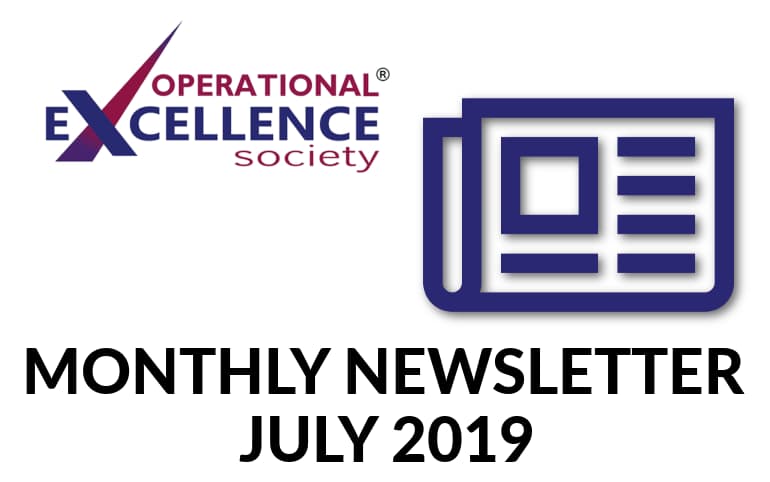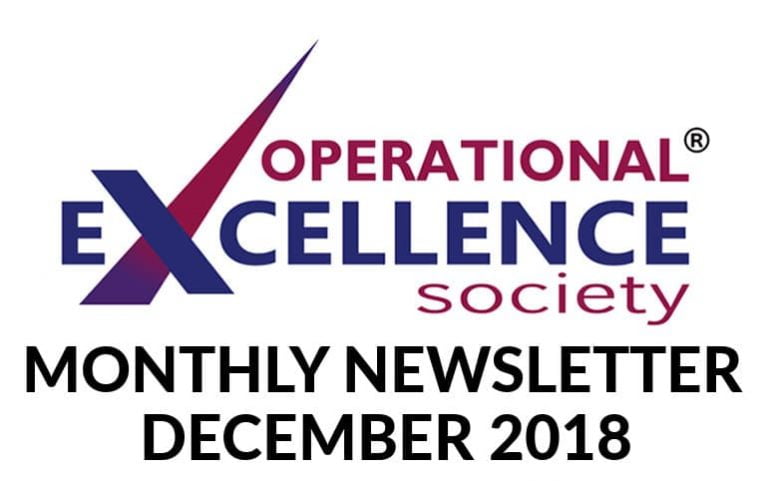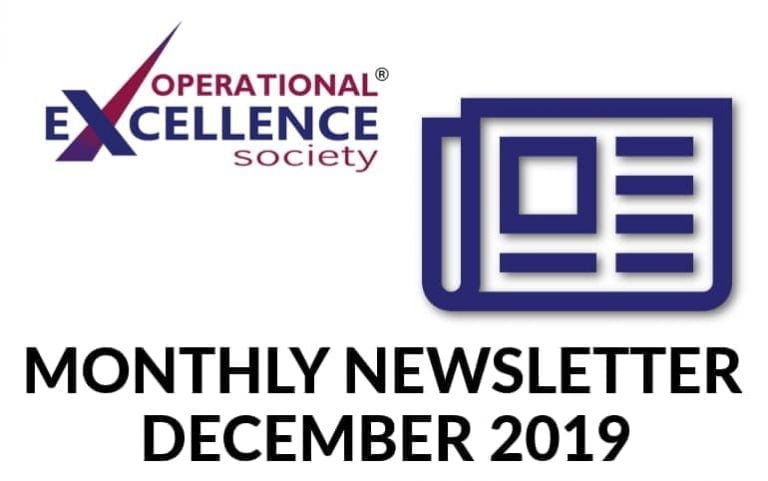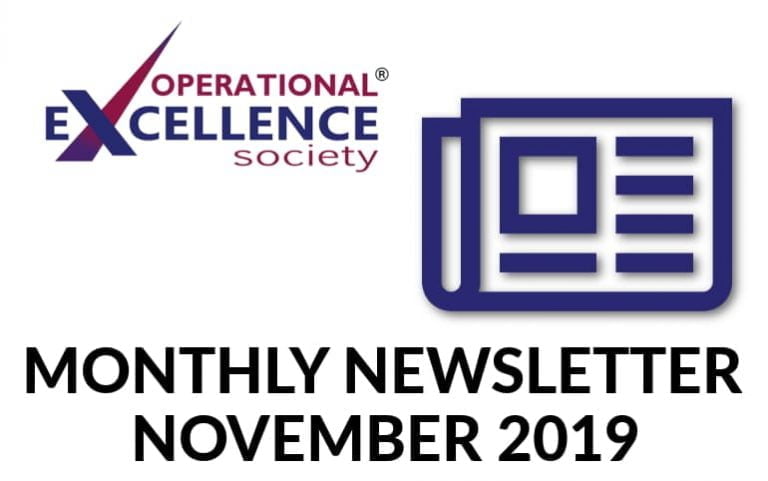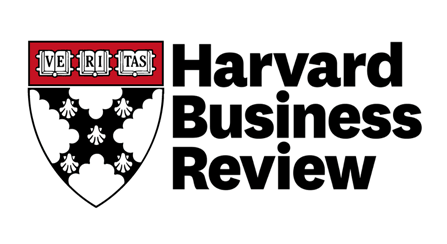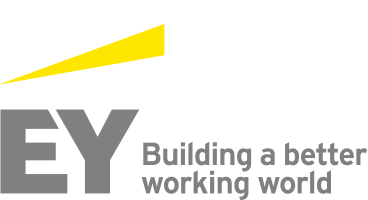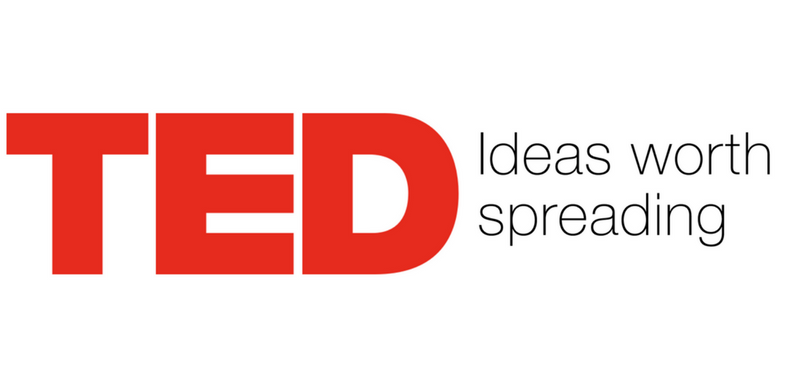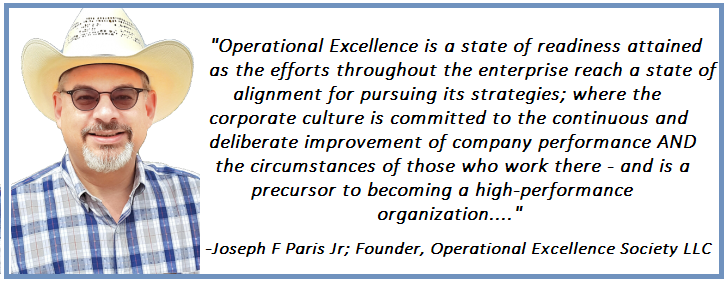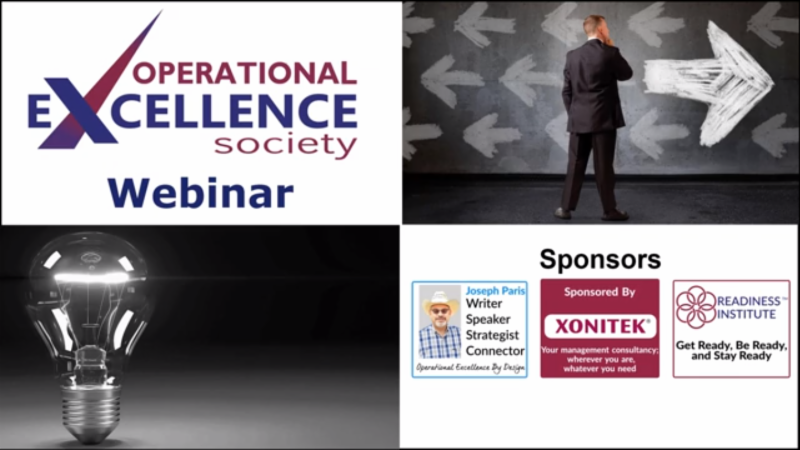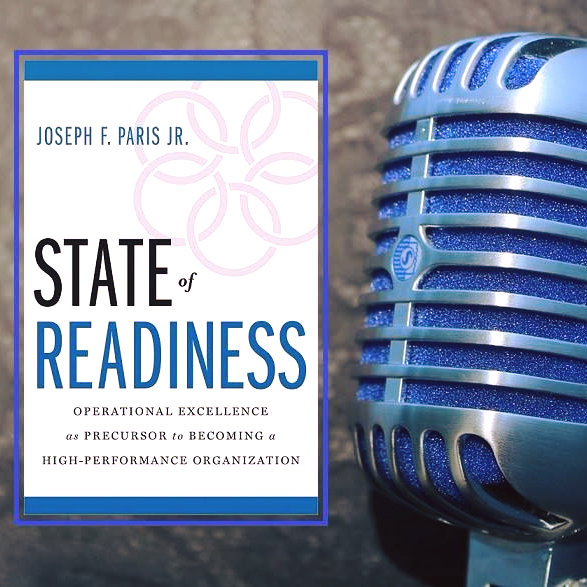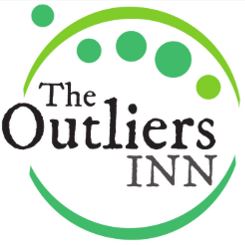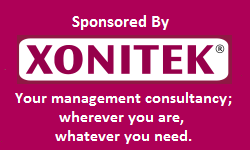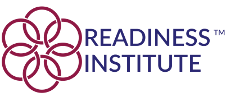I would find it hard to believe that any successful person achieved that success without having at least one mentor along their journey – someone who was instrumental and influential in the life journey of the person being mentored (the mentee). But what is mentorship? Mentorship is a semi-formal relationship between someone who has wisdom (knowledge plus experience) and is willing to share that wisdom with another (the mentor) and a person who seeks wisdom and insights to fill gaps in experience or to accelerate their journey. A healthy mentor/mentee relationship will be one where there is no expectation that the advice offered by the mentor will be heeded by the mentee, only that there is an openness to share and to consider. Read More |
|
 |
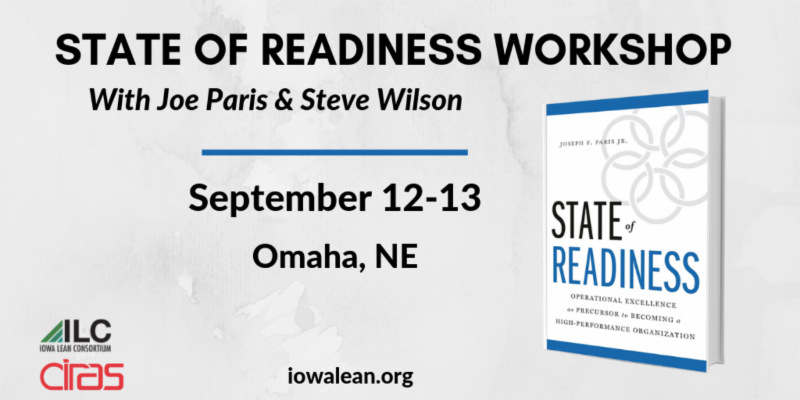 State of Readiness Workshop Sept 12 – 13, 2019 | Omaha, NE The Operational Excellence Society, together with the Iowa Lean Consortium, are excited to invite you to join us for this unique 2-day Masterclass and Workshop based on the groundbreaking book, “State of Readiness” by Joseph Paris. |
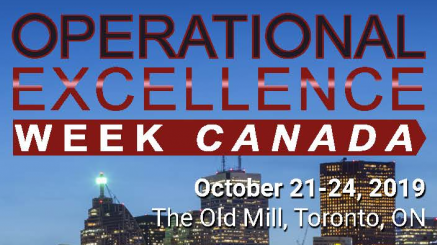 Operational Excellence Week Canada October 21- 23, 2019 | Toronto, Canada Join Joseph Paris at this excellent event where he will be delivering a Workshop as based on his groundbreaking book “State of Readiness”. Register now and receive a copy of the book for free at the event! |
 |
Blockchain for Business Before I built a wall I’d ask to know
What I was walling in or walling out,
And to whom I was like to give offence….
Good fences make good neighbors
– Robert Frost, 1914 In this article, I explore possible uses of blockchain technology in non-financial businesses. Possible uses because the technology and supporting infrastructure are still young and still being developed. And, because the benefits associated with possible uses also bring risks, I’ll spend some ink exploring potential perils. For many, our introduction to the term blockchain was associated with bitcoin, a digital creation claiming to be a new type of money. And, indeed, the initial development of blockchain provided the “rails” on which these new types of cybercurrencies flow. Blockchain’s origin in support of financial transactions-moving money-means that some of the discussion here will be drawn from that world, as will lessons to be learned, lessons that we can apply to non-financial business uses. by Michele Braun Read More |
|
 |
 |
The Language of Lean by Philip Holt One of the frequent criticisms that Lean Practitioners face in teaching Lean Thinking and its Leadership is that the language used can be confusing or exclusive. Whilst terms such as Kaizen and Kanban might have become well established across industry and geography, terms such as Kamishibai, Kaikaku and Yamazumi (please see the end of the article for a glossary of Lean terms) are less well known and can be received negatively by the very people for whom acceptance is critical if the Lean transformation is to be a success. A common response to this is to remove the Lean language, the ‘Japanese’, and instead replace it with the native language of the organisation or location. However, I would like to challenge this, as in my experience the root cause of the issue is not the language per se but the way in which it is introduced and taught. |
|
Operational Excellence Society |
 “Thank you for being a valued reader. “Thank you for being a valued reader. Please feel free to contact me if you have any
questions or comments related to this publication – or if you might be interested in
submitting an article for consideration in |
|
|
|
Lessons from the military on creating highly effective teams
|
|
I welcome Stephane Jeanmart, Chemistry Operational Excellence Lead at Syngenta, a global agrichemical business headquartered in Basel, Switzerland. In this episode, Stephane shares his journey from being formally trained in Chemistry, a discipline of predictable outcomes governed by formulas and exactness, to a less exact discipline that is Operational Excellence which is largely about people. |
|
 |
Another “Open Mic Night” at The Outliers Inn. Listen in on Antlerboy and JP as they discuss the Women’s World Cup; Renowned Transdisciplinary Behavioural Strategist, Organisational Misbehaviourist, and Ironist, Richard Claydon; and data privacy in the context of cyber security. We start with the discussion of soccer and the recent win of the Women’s World Cup by the American team. We ponder (well, mostly JP wonders), why the Europeans can field several successful men’s soccer teams and the States can’t, especially considering the population of the States and Europe are about the same. And we discuss Richard Claydon and his “cracking of the LinkedIn algorithm” for getting your posts (and you) recognized. And for the more serious content, our call-in guest, Malu, discusses data privacy in the context of cyber-security. We investigate the difference between data privacy and cyber-security and the consideration of whether the data is “outside the wall versus inside the wall.” The difficulties in regulation and regulation “harmonization” in an attempt to avoid the Balkanization of the Internet including the (nonsense of) GDPR and the various ways people can get to content to which they are otherwise blocked, the deal with “Cookies” and whether people really care (whatever) and, if so, to what extent. So, pull-up a seat, pour your favourite beverage, and listen Inn! Listen now! |
|
 |
Before there is Passion, there must first be: Interest, then Belief, then Ability, then Success
When I was growing-up, I had a lot of passions – or at least I thought they were passions. Fortunately, I was blessed with having a structure at home and at school that supported me in the exploration and development of my passions; or at least mostly supported me. |
|
Professional Organizations |
|
 |
|
